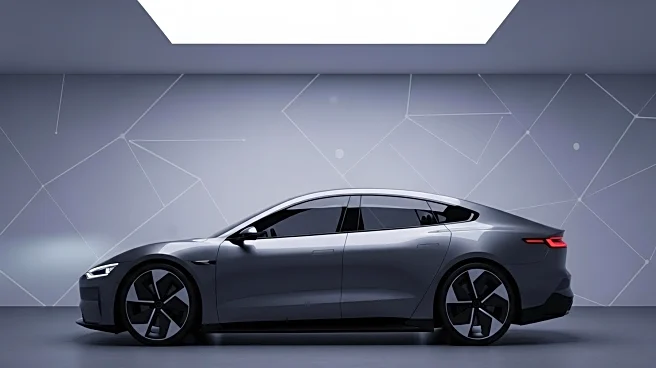What's Happening?
Tesla is experiencing a significant decline in its sales across several European markets, with August marking the eighth consecutive month of reduced registrations. In France, Tesla's car registrations fell by 47.3% compared to the previous year, despite a 2.2% increase in the overall car market. The situation is more severe in Sweden, where registrations plummeted by over 84%, and in Denmark, where they decreased by 42%. The Netherlands also reported a 50% decline. However, Tesla saw sales increases in Spain and Norway, although it was still outpaced by Chinese competitor BYD. The decline in Tesla's market share is attributed to increased competition from both Chinese electric vehicle (EV) manufacturers and traditional automakers, as well as a backlash against CEO Elon Musk's political views. Additionally, Tesla's aggressive price cuts on new cars have led to a depreciation in the value of used Teslas, making the secondhand market more attractive and further impacting new car sales.
Why It's Important?
The decline in Tesla's sales in Europe highlights the growing competition in the EV market, particularly from Chinese manufacturers like BYD, which are rapidly expanding their presence. This trend poses a challenge to Tesla's dominance in the EV sector, as it struggles to keep pace with new models introduced by both established and emerging competitors. The impact of Elon Musk's political affiliations on Tesla's brand image is also significant, as it appears to be deterring potential buyers. This situation underscores the importance of brand perception in consumer decision-making, especially in a competitive market. The depreciation of used Tesla vehicles due to price cuts further complicates the company's strategy, as it affects the resale value and attractiveness of new purchases. These factors collectively threaten Tesla's market position and could influence its future growth and profitability.
What's Next?
Tesla may need to reassess its market strategy in Europe to address the challenges posed by increased competition and brand perception issues. This could involve introducing new models to refresh its lineup and better compete with rivals. Additionally, Tesla might consider strategies to mitigate the impact of Elon Musk's political views on its brand, possibly through targeted marketing or public relations efforts. The company may also need to evaluate its pricing strategy to balance new car sales with the resale value of used vehicles. Stakeholders, including investors and industry analysts, will likely monitor Tesla's response to these challenges closely, as it could have significant implications for the company's market share and financial performance.
Beyond the Headlines
The situation with Tesla in Europe also raises broader questions about the influence of corporate leadership on brand perception and consumer behavior. Elon Musk's high-profile presence and political statements have become intertwined with Tesla's brand identity, illustrating the potential risks and rewards of such associations. This case may serve as a lesson for other companies on the importance of managing executive visibility and its impact on brand equity. Additionally, the competitive dynamics in the EV market highlight the rapid pace of innovation and the need for continuous adaptation to maintain a competitive edge.








